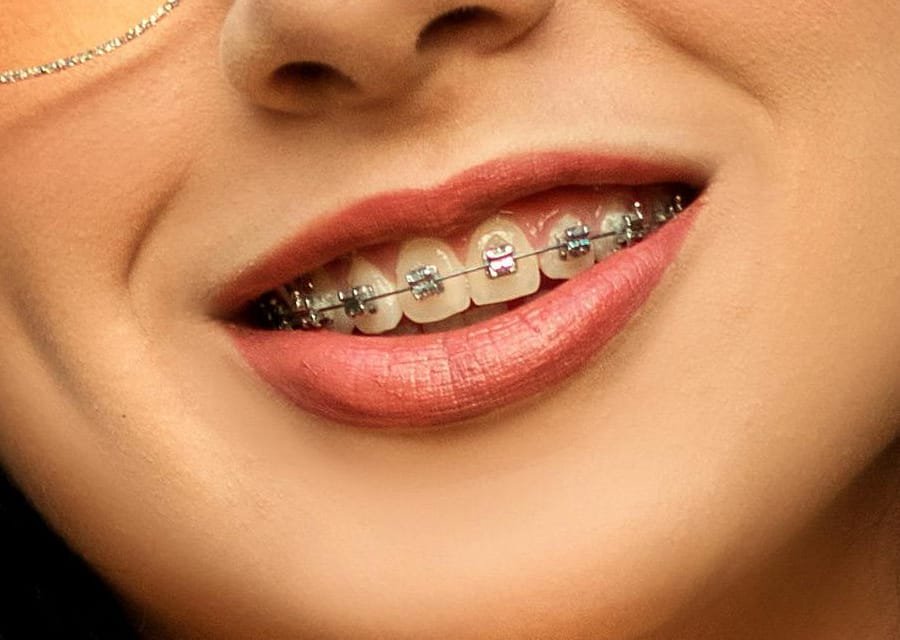
Temporomandibular Joint (TMJ) disorders are a common issue affecting millions of people worldwide. One of the most noticeable symptoms of TMJ disorders is the clicking or popping sound that may occur when opening or closing the mouth. If you or someone you know experiences these
sounds, it’s important to understand what they mean, their causes and how to address them. This comprehensive guide will provide valuable information to help you navigate TMJ issues with confidence.
What is TMJ?
The temporomandibular joint connects the jawbone to the skull and is essential for everyday functions like chewing, speaking and swallowing. Each side of the jaw has its own TMJ and they work together to allow smooth movement. However, various factors can disrupt this harmony, leading to TMJ disorders (TMJD).
What Causes TMJ Disorders?
TMJ disorders can arise from various factors, including:
- Jaw Injuries: Trauma to the jaw or head can lead to TMJ dysfunction, resulting in clicking sounds.
- Teeth Grinding (Bruxism): Many people grind their teeth during sleep or in response to stress, which can strain the TMJ.
- Misalignment: An improper bite or misaligned jaw can cause uneven pressure on the TMJ, leading to discomfort and noise.
- Arthritis: Osteoarthritis or rheumatoid arthritis can affect the TMJ, leading to inflammation, stiffness and clicking sounds.
- Stress: Emotional stress can lead to muscle tension in the jaw, contributing to TMJ disorders.
- Genetics: Some individuals may inherit a predisposition to TMJ issues based on family history.
Why Do TMJ Clicking Sounds Occur?
When the TMJ is functioning normally, the joint moves smoothly without any sound. However, if the joint is misaligned or if there are issues with the cartilage disc that cushions the joint, it can lead to clicking or popping sounds. Here’s why this might happen:
- Disc Displacement:
The articular disc, which helps facilitate smooth movement, may slip out of its proper position, leading to a catch or click as the jaw moves. - Joint Hyperactivity:
If the jaw muscles are overly tense or hyperactive, they can pull on the joint, causing a clicking sound when moving. - Arthritic Changes:
Inflammation and changes in the joint surfaces can also lead to irregular movement and noise.
Symptoms of TMJ Disorders
In addition to clicking sounds, TMJ disorders may present other symptoms, including:
- Jaw Pain: Pain in or around the jaw joint, which may extend to the neck or shoulders.
- Difficulty Chewing: A feeling of discomfort or locking when chewing or opening the mouth.
- Headaches: Frequent headaches or migraines may occur due to muscle tension.
- Ear Pain: Some individuals experience earaches or a feeling of fullness in the ears without any actual ear infection.
- Facial Pain: Pain may be felt in the face or jaw area, often exacerbated by certain movements.
- Limited Range of Motion: Difficulty fully opening or closing the mouth.
When to Seek Professional Help
If you experience persistent TMJ clicking sounds along with any of the aforementioned symptoms, it’s advisable to consult a healthcare
professional. Early intervention can prevent the condition from worsening and help alleviate discomfort. Look for the following signs:
- Persistent Pain:
If jaw pain or discomfort lasts more than a few days. - Frequent Clicking:
If the clicking sound occurs regularly, especially if it is accompanied by pain. - Difficulty Functioning:
If jaw discomfort interferes with eating, speaking or daily activities. - Changes in Jaw Mobility: If you notice a significant change in how your jaw moves or if it becomes locked.
Diagnosis of TMJ Disorders
A healthcare professional will typically begin with a comprehensive evaluation to diagnose TMJ disorders:
- Medical History:
Discussing your symptoms, lifestyle and any previous jaw or dental
issues. - Physical Examination:
Checking the jaw for signs of tenderness, clicking or limited range of motion. - Imaging Tests:
X-rays, MRI or CT scans may be ordered to assess the joint structure and detect any abnormalities.
Treatment Options for TMJ Clicking Sounds
Treatment for TMJ disorders varies depending on the severity of the condition. Here are common treatment options that may be recommended:
1. Conservative Treatments
- Self-Care Practices:
Applying heat or cold to the affected area, practicing relaxation techniques and avoiding hard foods can help alleviate symptoms. - Over-the-Counter Pain Relievers: Non-steroidal anti-inflammatory drugs (NSAIDs) can reduce pain and inflammation.
- Jaw Exercises:
Gentle exercises can help improve jaw mobility and reduce stiffness.
2. Dental Treatments
- Splints or Night Guards: Custom-fitted mouthguards can help prevent teeth grinding and alleviate pressure on the TMJ.
- Orthodontic Treatment: For misalignment issues, orthodontic treatment may be necessary to correct the bite.
3. Physical Therapy
Physical therapy may include exercises to strengthen the jaw muscles, improve range of motion and reduce pain.
4. Medications
In more severe cases, prescription medications such as muscle relaxants, corticosteroids or even antidepressants may be recommended to manage pain and inflammation.
5. Surgical Options
If conservative treatments do not yield results, surgical options may be considered. These can range from arthroscopy to more invasive procedures, depending on the specific issue with the joint.
Preventing TMJ Disorders
While not all cases of TMJ disorders are preventable, you can take steps to reduce your risk:
- Manage Stress: Practice relaxation techniques such as meditation or yoga to minimize muscle tension.
- Avoid Jaw Clenching: Be mindful of jaw clenching during stressful situations and try to consciously relax the jaw.
- Maintain Good Posture: Proper posture can help alleviate tension in the neck and jaw area.
- Limit Chewing Gum: Excessive chewing can strain the jaw muscles.
- Regular Dental Check-Ups: Regular visits to the dentist can help identify issues before they escalate.
Conclusion
Understanding TMJ clicking sounds and the potential implications can empower you to take control of your oral health. If you notice persistent clicking or experience discomfort, don’t hesitate to seek professional help. With a variety of treatment options available, many individuals find relief and regain normal function in their jaws.
At our practice, we prioritize patient education and comprehensive care. If you have any questions about TMJ disorders or would like to schedule an appointment, please reach out. Your comfort and well-being are our top priorities and we’re here to help you achieve a healthy, pain-free smile!
To schedule an appointment at ‘Sukumar Dental Clinic’ call +91-74182 10108 or WhatsApp Dr. Sukumar at +91-96552 25002. We take pride in having the top dental clinic in Palayamkottai, Tirunelveli. Alternatively, you can email us at info@sukumardental.com


